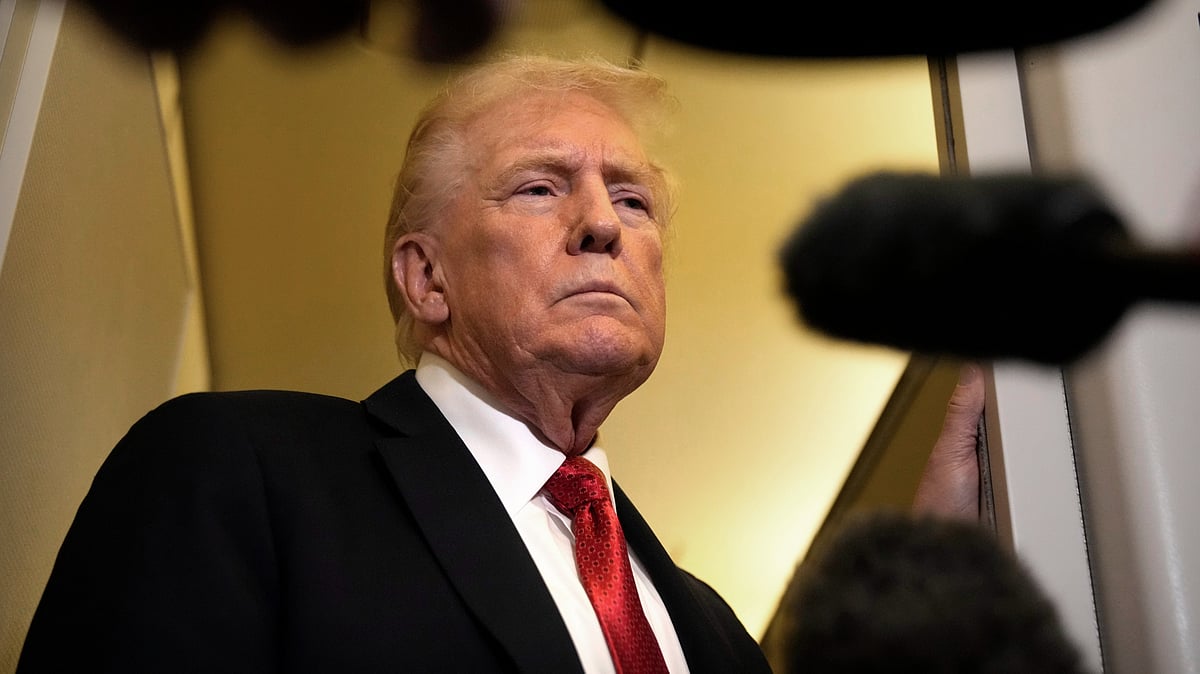World
Colombia recalls envoy after Trump’s tariff threats, 'drug leader' remark
Bogotá protests US military strikes and looming tariffs, accuses Washington of overreach and disrespect for Latin America’s autonomy

Colombia said on Monday it has recalled its ambassador from Washington following remarks by US President Donald Trump, who threatened to raise tariffs on Colombian goods and halt all financial assistance to the South American nation — escalating an already volatile diplomatic rift over recent US military strikes in the Caribbean.
In an unusually sharp statement, Colombia’s foreign ministry said the decision was made “in protest at the offensive and unfounded accusations” made by the US President, who on Sunday referred to President Gustavo Petro as an “illegal drug leader”.
The comment, which the Petro administration described as “deeply insulting”, marked the latest downturn in relations between Washington and Bogotá — a partnership that has historically been one of the closest between the United States and any Latin American government.
Tensions have been mounting for weeks after a series of US military strikes on small vessels in the Caribbean, which Washington claims were transporting narcotics. The bombings have killed dozens of people, including civilians, and provoked outrage across Latin America.
Petro, Colombia’s first leftist president, has condemned the US operations as a violation of international law and Colombian sovereignty. “Mr. Trump, Colombia has never been rude to the United States ... but you are rude and ignorant to Colombia,” Petro wrote on X. “Since I am not a businessman, I am even less a drug trafficker. There is no greed in my heart.”
The president was responding after a US airstrike on Sunday destroyed a small fishing boat in Colombian waters, killing three people. US defence secretary Pete Hegseth said the target was a vessel operated by the National Liberation Army (ELN), a leftist insurgent group involved in narcotics smuggling.
Published: undefined
Petro countered that the boat belonged to “a humble family”, calling the attack “an act of barbarism”.
In remarks to reporters, Trump said he would cut off all US payments to Colombia and impose new tariffs on its exports, accusing the Petro government of “colluding with criminal elements”.
The White House did not clarify what aid programmes or payments the President was referring to. Colombia was once one of the largest recipients of US development assistance under Plan Colombia, a multi-billion-dollar anti-narcotics and security initiative launched in 2000. But funding dwindled sharply after Trump ordered the closure of USAID, the US government’s humanitarian arm, earlier this year.
Colombia currently faces a 10 per cent baseline tariff on most of its exports to the US, a rate Trump has applied broadly to countries he accuses of “unfair trade practices”. Any further increases could severely affect the Colombian economy, which relies on the U.S. for 35 per cent of its exports — mainly oil, coal, coffee, and flowers. About 70 per cent of Colombia’s imports from the US are essential goods not produced domestically, according to the Colombian-American Chamber of Commerce.
Colombia’s foreign ministry said it would seek international support for President Petro, framing the dispute as one about national sovereignty rather than ideology.
Published: undefined
The government has also requested consultations with regional partners in CELAC (the Community of Latin American and Caribbean States) and the United Nations Human Rights Council, arguing that the US airstrikes amount to extrajudicial military actions in foreign territory.
Petro, a former senator and ex-mayor of Bogotá, rose to prominence two decades ago for exposing ties between right-wing paramilitary groups and politicians involved in Colombia’s drug trade. Since taking office in 2022, he has pledged to replace militarised drug eradication with social and environmental programmes in coca-growing regions — a strategy that has met with limited results but enjoys strong backing from progressive governments in Latin America.
Colombia posted a $338 million trade deficit with the United States between January and July 2025, according to the national statistics agency DANE. Despite recent strains, U.S. investors still account for roughly 34 per cent of Colombia’s foreign direct investment, or about $2.27 billion in the first half of the year.
The recall of Bogotá’s ambassador marks the most serious diplomatic rupture between the two countries since the late 1980s, when tensions over Washington’s drug-war policies first began to strain bilateral trust.
With both leaders doubling down, analysts warn the fallout could ripple far beyond trade — jeopardising decades of US-Colombia cooperation on counter-narcotics, security, and regional stability.
With agency inputs
Published: undefined
Follow us on: Facebook, Twitter, Google News, Instagram
Join our official telegram channel (@nationalherald) and stay updated with the latest headlines
Published: undefined